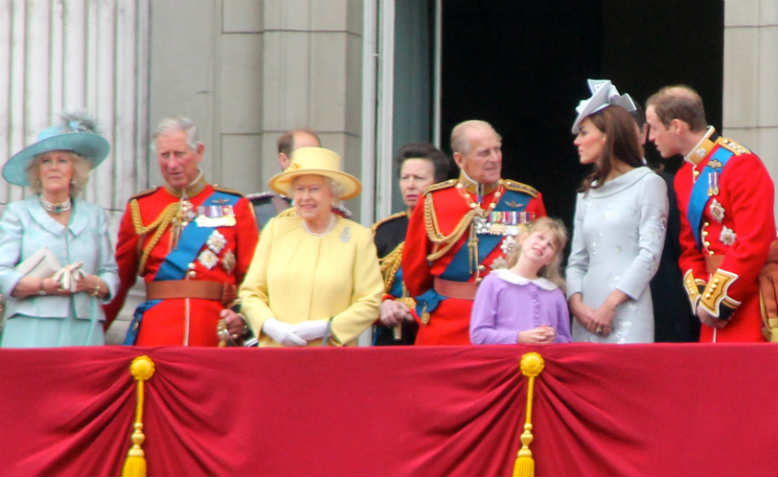 The Queen and Prince Charles have been implicated in investing offshore in the new Paradise Papers leak. Photo: Wikimedia Commons
The Queen and Prince Charles have been implicated in investing offshore in the new Paradise Papers leak. Photo: Wikimedia Commons
The Paradise Papers have exposed once more the deep inequalities that plight our country but they also show us a glimpse of the secretive and devious workings of the Crown argues Patricia Pino
The opaqueness of our constitutional arrangements is evident in the ignorance of the public of the financial rights and privileges enjoyed by their Head of State.
The Crown has two Duchies: Lancaster & Cornwall. They are portfolios of property, which combined encompass approximately 180,550 acres of land. These include everything from farmlands to historical buildings, residential as well as commercial areas. They are public property but pay their profits to the monarch (Lancaster) and first in line to the throne (Cornwall). Neither of them are allowed to sell any land nor profit from capital gains.
The Duchies are remnants of ancient royal arrangements within the Crown. Their original purpose lost, the Royals have carried on with the tradition of benefiting from them and have resisted attempts to tax their earnings. Facing increased public pressure in 1993, both Charles and the Queen offered to pay income tax voluntarily (less any amount which they consider to be expenditure). Not difficult to see why. It’s easier to maintain confidentiality with a voluntary contribution.
But while most politicians have chosen to either attack the use of tax havens or defend the Queen’s innocence (and supposed ignorance). There remains a more pressing issue: that which concerns the lack of transparency and scrutiny that we are able to exert on our main public official.
After the Spider Memos, which revealed that Charles had continuously exerted pressure on government ministers on various issues (such as fox hunting), the Crown lobbied ministers to obtain an exemption from the Freedom of Information Act. No further revelations of government intrusion can ever be made. Neither is the Crown obliged to clarify, nor allow investigation into the possible unethical use of Duchy money. Whatever the media says about the details of their affairs, it will remain as mere speculation.
The quantities given every year to the Queen and Prince of Wales from the Duchies are approximately £16 million and £19 million respectively. No small sum. But what is the cost to democracy of allowing the royal family to carry out their duties behind closed doors?
The vast majority of the public tolerate the monarchy on the basis that it shall remain politically powerless, but wealth brings influence and secrecy brings corruption. Whatever deal we think we have with the institution, we are not allowed to read the small print. What pressures are being placed upon our parliament? Whose personal interests are being advanced?
The media response has been as per usual lenient. Despite the initial sensationalism, royal correspondents emphasised the fact that the Queen gave income tax ‘voluntarily’ (an appeal to the trust of the public), dismissed the whole affair as, ‘an embarrassing moment’ and made sure people understood that there was no proof that the Queen had avoided tax (but decided it pointless to mention that it is not possible to obtain it).
This is ultimately what the institution is about. It’s primary aim is merely to continue to exist, to encourage our deference and portray questioning as out of line. A cloak of apparent virtue is placed upon the Royals behind which they can behave as they please without public scrutiny, but with more rights, privileges and influence than any citizen of this country could ever dream of.
They are presented as incapable of the human flaws of self-interest, greed, and entitlement. No one has asked, and no one will ask the Queen to make a statement about this. She’s absolved from the embarrassment of having to justify or defend her own actions.
The Royals will deal with this crisis in much the same way they’ve dealt with others in the past. They will remain silent and out of sight.
They do this, because distance reasserts their position above citizenry. They behave according to the laws of quantum physics: unless one looks at them, they don’t exist. In times of judgement, monarchy retreats to the safety of its status as an abstract symbol of patriotism and nationhood, and leave the public to do trial without the accused. But when they finally emerge, and we are told that they are waving in service to us, do they not do so too (or more) in service to themselves?
- Patricia Pino is a Board Director at Republic and a writer at ThePileus.com. She has written this article in a personal capacity.

